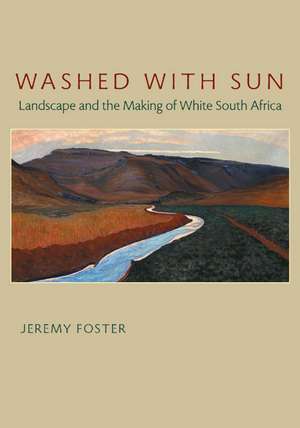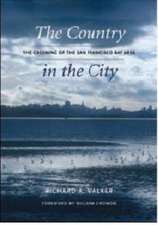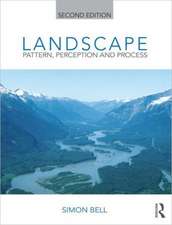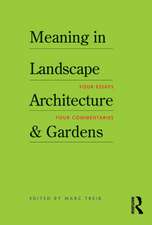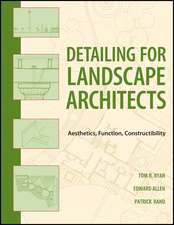Washed with Sun: Landscape and the Making of White South Africa
Autor Jeremy Fosteren Limba Engleză Paperback – 10 iul 2008
South Africa is recognized as a site of both political turmoil and natural beauty, and yet little work has been done in connecting these defining national characteristics. Washed with Sun achieves this conjunction in its multidisciplinary study of South Africa as a space at once natural and constructed. Weaving together practical, aesthetic, and ideological analyses, Jeremy Foster examines the role of landscape in forming the cultural iconographies and spatialities that shaped the imaginary geography of emerging nationhood. Looking in particular at the years following the British victory in the second Boer War, from 1902 to 1930, Foster discusses the influence of painting, writing, architecture, and photography on the construction of a shared, romanticized landscape subjectivity that was perceived as inseparable from “being South African,” and thus helped forge the imagined community of white South Africa.
In its innovative approach to South Africa's history, Washed with Sun breaks important new ground, combining the persuasive theory of cultural geography with the material specificity of landscape history.
In its innovative approach to South Africa's history, Washed with Sun breaks important new ground, combining the persuasive theory of cultural geography with the material specificity of landscape history.
Preț: 474.45 lei
Nou
Puncte Express: 712
Preț estimativ în valută:
90.78€ • 95.04$ • 75.12£
90.78€ • 95.04$ • 75.12£
Carte disponibilă
Livrare economică 17-31 martie
Preluare comenzi: 021 569.72.76
Specificații
ISBN-13: 9780822959588
ISBN-10: 0822959585
Pagini: 424
Ilustrații: 36 color, 110 b&w Illustrations
Dimensiuni: 178 x 229 x 10 mm
Greutate: 0.89 kg
Ediția:1
Editura: University of Pittsburgh Press
Colecția University of Pittsburgh Press
ISBN-10: 0822959585
Pagini: 424
Ilustrații: 36 color, 110 b&w Illustrations
Dimensiuni: 178 x 229 x 10 mm
Greutate: 0.89 kg
Ediția:1
Editura: University of Pittsburgh Press
Colecția University of Pittsburgh Press
Recenzii
“Beautifully written and sumptuously illustrated . . . This nuanced analysis (so much more than ‘mere’ deconstruction) of texts, images and landscapes against the backdrop of place, space and imperial visions is also a visually rich and most enjoyable read.”
—The Geographical Journal
—The Geographical Journal
“I recommend [Foster’s] book . . . to anyone seeking to understand the complex, mutually constitutive interplay between land and Land.”
—Journal of Regional Science
—Journal of Regional Science
“Intelligent, appealing, and engaging. This well-written and richly illustrated work offers a sophisticated model for interpretation of identity and landscape. Indispensable for students of South Africa, and most useful for scholars of the cultural landscape. Essential.”
—Choice
—Choice
“An inportant work: intellectually based, visually stunning and lucidly written. It should be consulted by all those who study South Africa.”
—Journal of Modern African Studies
—Journal of Modern African Studies
“[An] excellent study . . . detailed, descriptive and solidly historical, bound to remain the seminal study on the subject for some time.”
—Journal of Southern African Studies
—Journal of Southern African Studies
“One of the accomplishments of Foster’s smart and thoughtful book is that it satisfies readers’ desires to understand the historical roots of apartheid. . . . Foster’s second and ultimately more important accomplishment is to make a case for the value of studying, as he does here, the corporeal, material nature of landscape experience and comprehension.”
—Buildings & Landscapes
—Buildings & Landscapes
“The strengths of the book lie at the points in which perceptual practice and historical positioning coincide. In this, Foster does not so much collapse the distinction between ‘land’ and ‘scape,’ but like the best sort of geography, communicates between the space of the body and the time of culture.”
—Safundi: The Journal of South African and American Studies
—Safundi: The Journal of South African and American Studies
Notă biografică
Jeremy Foster teaches architecture and planning at Cornell University. His articles have appeared in numerous publications, including Journal of Historical Geography, Cultural Geographies, and Journal of Southern African Studies.
Descriere
Looking mainly at the years following the British victory in the second Boer War, from 1902 to 1930, Foster examines the influence of painting, writing, architecture, and photography on the construction of a shared, romanticized landscape subjectivity that was perceived as inseparable from “being South African”, and thus helped forge the imagined community of white South Africa.
